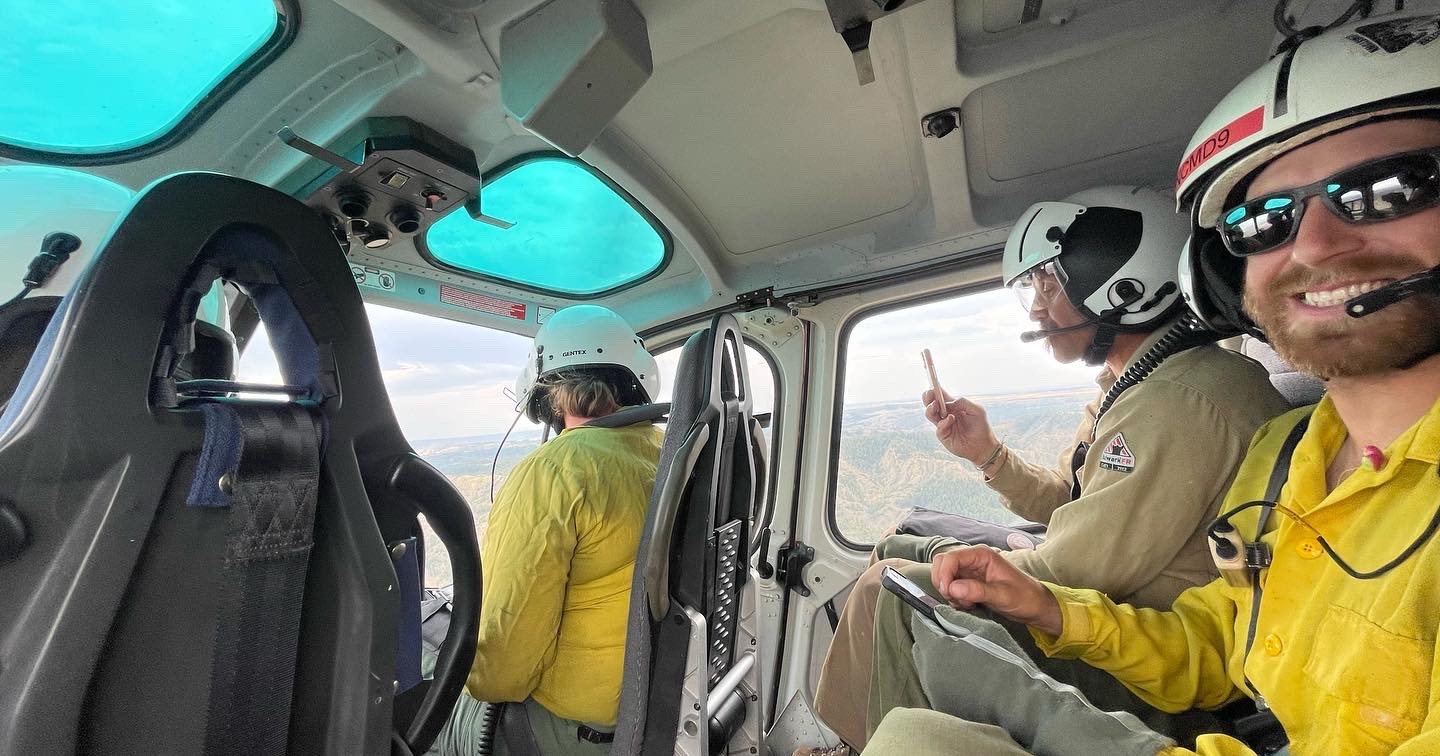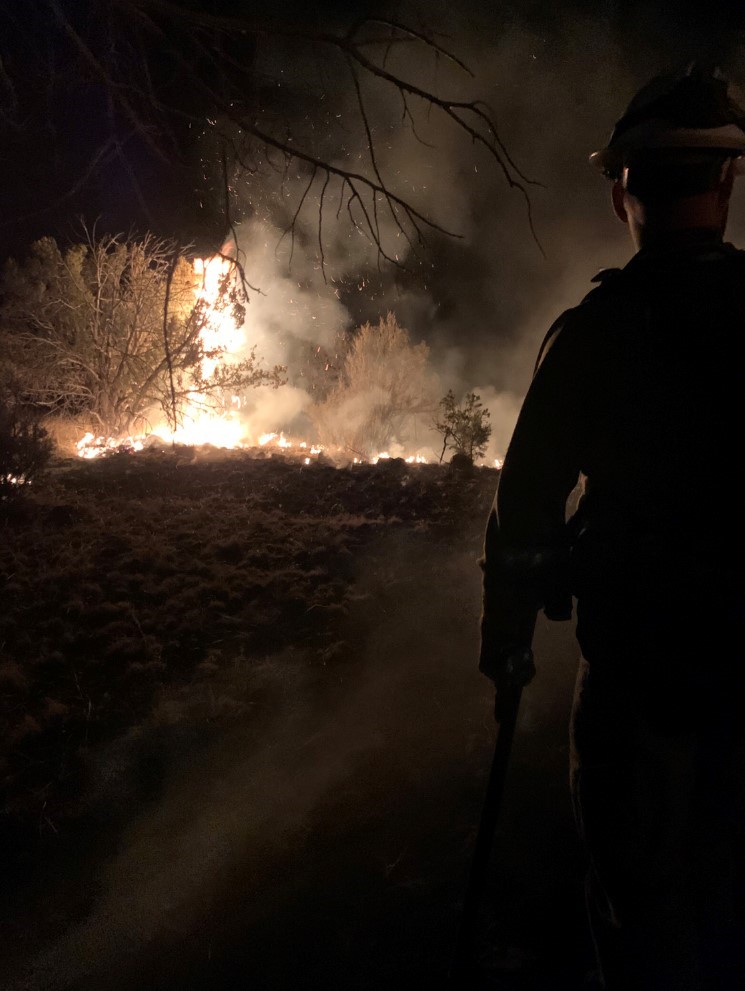Machining Technology alumnus says wildland firefighting is a great job for college schedules

Colton Wolken graduated with an associate of science degree in machining technology in Spring 2023, and says the skills are valuable to have in winter, when he has time off from working as a Senior Firefighter for the U.S. Forest Service in White Sulphur Springs, Montana.
Wolken is originally from Gordon, Nebraska, and ended up in Montana after serving in the military.
“I never planned on going to college, but after finishing my enlistment in the military, it felt irresponsible not to use my GI Bill benefits,” Wolken said. “I transitioned to wildland firefighting immediately after returning home from my second deployment and worked until late October of 2020. I hadn't realized that the majority of entry level fire positions get laid off in the winter months (there's not enough work to justify keeping them employed through the winter) and had to come up with something to occupy my off-season. I decided to go to college.”
Wolken was unfamiliar with what colleges might suit his needs.

“Coming from Nebraska, I had no idea what schools were available in Montana,” Wolken said. “I liked working with my hands and thought that a tech school would be best for me. I entered ‘Tech schools in Montana’ into an internet search and, sure enough, I found Montana Tech. I figured it'd be nice to work mostly indoors for the winter so I chose the Machining Technology program.”
Wolken has been fighting fires in the summer and attending school in the winter since 2020.
“I finished my degree this spring and got a promotion into the Senior Firefighter position for this summer,” Wolken said. “Fighting fire and studying for school are completely different endeavors, but a solid work ethic, time management, and communication skills are definitely examples of skills learned in either field that prepared me for the other.”
Wolken said fighting fires was a great way to fund his education.

“I can't speak for other jobs in the Forest Service, but as far as Fire goes, I would say it's a great way to earn a respectable amount of money over the span of a summer,” Wolken said. “So long as you're willing to work hard that is. The work schedule suits the college lifestyle well and is an excellent way to challenge yourself. I would recommend it to any student simply as a means to pay for school. Then after a season or two, you can decide if it’s a career worth pursuing, or to use the skills you learned in college.”
Wolken also had insight into working in the precision machining field.
“If you like math and making things, it's probably right up your alley,” Wolken said. “Machinists are what build everything from titanium bulkheads for F35 fighter planes, to the tiny brass cogs in a Rolex watch. Machinists are in high demand, and if you get good enough at it, it'll pay as well as welding. It does take a decent amount of time to master machining though, so you'll probably spend some time at more of the entry-level pay grade for most companies.”